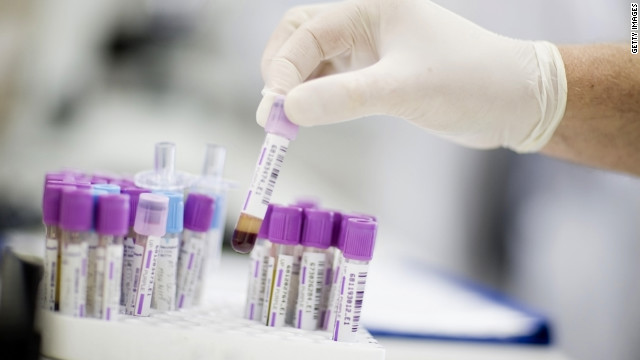How do I know if I have prostate cancer?
1:09
(CNN) --
A blood test for prostate cancer may be better than experts first thought, especially among black men, according to a new study.
According to the US Centers for Disease Control and Prevention (CDC), there is no standard test to screen for prostate cancer.
Two of the most commonly used tests are digital rectal examination and a blood test to detect prostate-specific antigen (PSA), an enzyme that is usually higher in men with prostate cancer.
How can you prevent cancer?
There are two approaches and several useful recommendations
A study, published Sunday in the New England Journal of Medicine Evidence, looked at how successful blood tests are in all races, and specifically in black men, estimating how often these tests lead to to overdiagnosis and overtreatment.
The researchers analyzed three decades of records through 2016, the last year records were available.
Not only was the trial more effective than scientists originally thought, the study found that the net benefit is even greater for black men than for the general population.
According to the study, one death was averted for every 11 to 14 men of all races diagnosed with cancer.
Among black men, the test prevented 1 death for every 8 to 12 men diagnosed and 1 death for every 5 to 9 men treated for prostate cancer.
Previous studies found that testing prevented 1 death for every 23 men diagnosed, resulting in overtreatment.
advertising
Prostate cancer is widespread.
With increased testing in the late 1980s, there was a trend to treat tumors that weren't a real threat as well as those that were, according to the American Society of Clinical Oncology.
But more recently, for tumors that show no risk of progression, doctors have taken an active surveillance approach.
Prostate cancer is the second leading cause of cancer death in American men, behind lung cancer, according to the American Cancer Society.
For every 100 American men, about 3 will get prostate cancer in their lifetime, according to the CDC, and 2 to 3 men will die from prostate cancer.
Black men have almost twice the risk of death from prostate cancer than the general population.
They also get prostate cancer more often.
However, black men have historically been underrepresented in clinical trials looking at the success rate of tests and other diagnostic tools.
"These data should prompt policymakers to reconsider the usefulness of PSA-based prostate cancer screening, particularly for black men," the study concludes.
"The potential for overdiagnosis and overtreatment remains, although these harms may be mitigated by current protocols for triage of men prior to biopsy and active surveillance for men with low-risk disease."
The study is partially funded by the Bristol Myers Squibb Foundation, which has drugs for prostate cancer in development.
Early detection of prostate cancer saves lives 1:09
Dr. William Dahut, chief scientific officer of the American Cancer Society, called the results "very important."
It's not something I commonly say." Dahut was not part of this investigation.
However, Dahut noted that some practices are a bit different now than when these records were collected.
Doctors can also detect prostate cancer with an MRI, for example, and a diagnosis of cancer doesn't lead to treatment as often.
This used to be called "watchful waiting," but Dahut said it's actually more active than it looks.
Depending on the risk of the cancer spreading, the person may be closely watched with regular MRIs and biopsies instead of receiving treatments such as surgery and radiation.
They will have an ongoing discussion with their doctor about managing the disease.
"This study should encourage more people to get screened," says Dahut.
"Today, you have a much better ability to make a more nuanced and thoughtful decision with your doctor about whether or not to treat your prostate cancer."
"Ultimately," he added, "what this means is that if the disease is detected and treated appropriately, the results can have a significant and positive impact."
Prostate cancer








